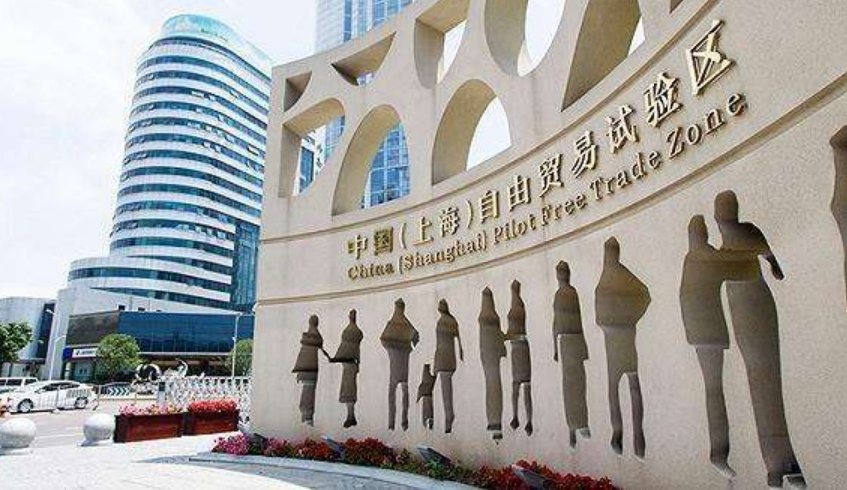Financial openness has reached a new stage in 2018. Since April this year, China's financial regulator have put a string of measures such as relaxing market access and expanding the business scope for foreign-funded banks and institutions engaged in insurance, security, fund and futures into implementation. Supported by policies favor, a host of financial institutions have increased their investment in China, and some of them received the approval for their applications of new institution establishment and holding increase.
Free trade zones (FTZs) will be vital pilot areas for financial opening-up, and measures to prevent financial risks and expedite two-way opening-up will be due practiced, estimated by some insiders.
2018 witnesses implementation of a slew of policies
"Opening up acts as a great opportunity for players in the financial sector. Groundbreaking policies have eased the restriction on foreign-funded banks to hold shares in banks based in China. It allows foreign-funded banks, with permission, to start business in the Chinese mainland by setting up subsidiaries or branches," Chen Feng, president of Fubon Bank, noted in his latest public talk.
According to the groundbreaking policy Chen mentioned, foreign banks are allowed to establish wholly foreign-funded banks and branches, or joint Chinese-foreign banks and foreign branches at the same time in China. Meanwhile, approval by authorities for foreign-funded banks' service such as overseas financial management and securities investment fund custody have been canceled and replaced by reporting system.
In April 2018, Yi Gang, governor of the People's Bank of China, disclosed the detailed blueprint and timetable to further opening-up of China's financial sector at the Boao Forum for Asia Annual Conference. Policies to push forward opening-up of banks and financial institutions would come into force by the end of this year.
Many other regulations, which allows foreign businesses to own up to 51 percent of shares in a securities company and phases out the cap on foreign businesses' shareholding in Chinese-funded banks and financial assets management companies have also taken effect.
The opening up of finance sector largely enriched the types of China's finance institutions, injected more vitality into the finance market, improved the efficiency of finance resource distribution, and helped financial institutions better serve real economy at home, reckoned Wu Qi, senior researcher at Pangoal think tank. Moreover, the opening up also enabled banks to actively use foreign capitals to alleviate current capital shortage.
Foreign-funded financial institutions speed up stepping into China
With the opening-up of financial sectors in China, foreign-funded financial institutions have flocked to China to set up new institutions or enlarge their shareholding.
"JPMorgan Chase has submitted the application to China Securities Regulatory Commission (CSRC) to launch a securities firm in which it holds 51 percent shares. And by leveraging its advantage in orchestrating global business, it plans to lift the shares to 100 percent for years to come within the regulatory scope," Mark Leung, CEO of JPMorgan Chase China, told the Xinhua-run Economic Information Daily. According to reports, CSRC has accepted JPMorgan Chase's application and given the preliminary feedback. Leung also said that China's financial market, with enormous potential in both width and depth, promised a broad prospect for foreign businesses.
In the fourth quarter, Chiyu Banking Corporation and Allianz SE's applications to establish branches in China were approved. Particularly, Allianz (China) Insurance Holding Company Limited will be China's first-ever wholly-owned insurance holding company by a foreign insurer.
"Financial openness is an important part of China's economic transformation; therefore,foreign investments and financial institutions are expected to boost the efficiency and competitiveness of China's financial market. We expect that China will maintain its growth momentum in global insurance market and finally stand out as the world's largest insurance market," the press office of Allianz SE stated.
In addition, CSRC has approved the application of UBS AG to increase its shares in UBS Securities to 51 percent. Other companies, such as Nomura Holdings has submitted the application for lifting its shares in a foreign-funded securities company to 51 percent.
FTZs to further open up
The financial sector of China will keep opening. More supporting policies are expected to come into effect, especially in the FTZs, where some pilot policies for promoting financial openness will be first implemented.
Recently, the State Council released the measures to support pilot FTZs in deepening reform and innovation. Of these measures, 12 are about the financial sector. According to Xu Zhong, director general of the Research Bureau of the People's Bank of China (PBOC), in building the pilot FTZs, PBC will proactively increase the openness of the financial sector, encourage FTZs to play their pilot roles, and implement the measures on opening the financial sector as a priority.
In an interview with the Economic Information Daily, He Fei, senior researcher at the Financial Research Center of the Bank of Communications, noted that the governance of joint ventures should be further standardized. In financial joint ventures, foreign capitals should have equity as well as rights in decision making. To this end, related supporting policies should be further improved. (Edited by Bao Nuomin)




 A single purchase
A single purchase









